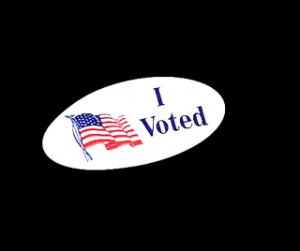 Michigan voters continued to show their support for cities and villages on election day. There were nearly 40 tax-related requests on Tuesday’s primary election ballot from Michigan cities and villages and all but two were successful, according to a report by MIRS News Service.
Michigan voters continued to show their support for cities and villages on election day. There were nearly 40 tax-related requests on Tuesday’s primary election ballot from Michigan cities and villages and all but two were successful, according to a report by MIRS News Service.
This is consistent with other recent election results and the trend that people will overwhelming support tax increases for services they value, such as roads, libraries, senior services, police and fire protection and public transit, said Michigan Municipal League CEO and Executive Director Dan Gilmartin.
“These results show that voters will support tax increases for services they want and expect in making their communities desirable places to live, work, and enjoy,” Gilmartin said. “However, there is an underlying trend that is concerning: These results also show that the state’s system for funding municipalities is broken and that local communities and local taxpayers must continually counter the disinvestment in cities and villages that state leaders continue to demonstrate.”
Specifically, Gilmartin points to a League study from earlier this year that showed between 2003 and 2013 Michigan governors and legislators diverted $6.2 billion in statutory revenue sharing from local communities to plug holes in the state budget. This, along with a dramatic decline in property tax revenues, has forced communities cut and streamline local services and to look at alternative funding sources, including, but not limited to, millage increases.
Due to this disinvestment in local communities, it was not surprising to learn from MIRS that there were 786 local ballot proposals before voters on Tuesday and 267 of those proposals asked for new money. About 80 percent of the proposals MIRS classified as new tax increases passed, while 99 percent of all proposals classified as tax renewals passed. You can view the full MIRS list here.
A large majority of the requests were from townships, schools, and counties. There were about 38 tax-related requests on the ballot specific to Michigan cities and villages, plus at least four non-tax related charter amendments (all passed). Of those 38 requests, 36 passed and just two failed, according a League review of the MIRS report and in looking at other news articles about the unofficial election results.
Many of the new asks were road related and passed with nearly a 90 percent success rate. This is not surprising given the poor condition of Michigan’s roads and lack of consensus on a long-term road funding solution in Lansing. The Michigan Municipal League, in its Partnership for Place Agenda initiative, has suggested a variety of possible solutions to address the state’s transportation needs and other municipal funding concerns. You can view this agenda here.
“While voters have constantly shown support for local taxes that provide value and improve quality of life, there remains an underlying belief in Lansing that the citizens of Michigan will not support such efforts statewide,” Gilmartin said. “This election further proves that individuals care about their local communities and expanding investment in Michigan’s transportation network would be a great place for the Legislature to follow the lead of the constituents they represent.”
Matt Bach is director of media relations for the Michigan Municipal League. He can be reached at mbach@mml.org and (734) 669-6317.

